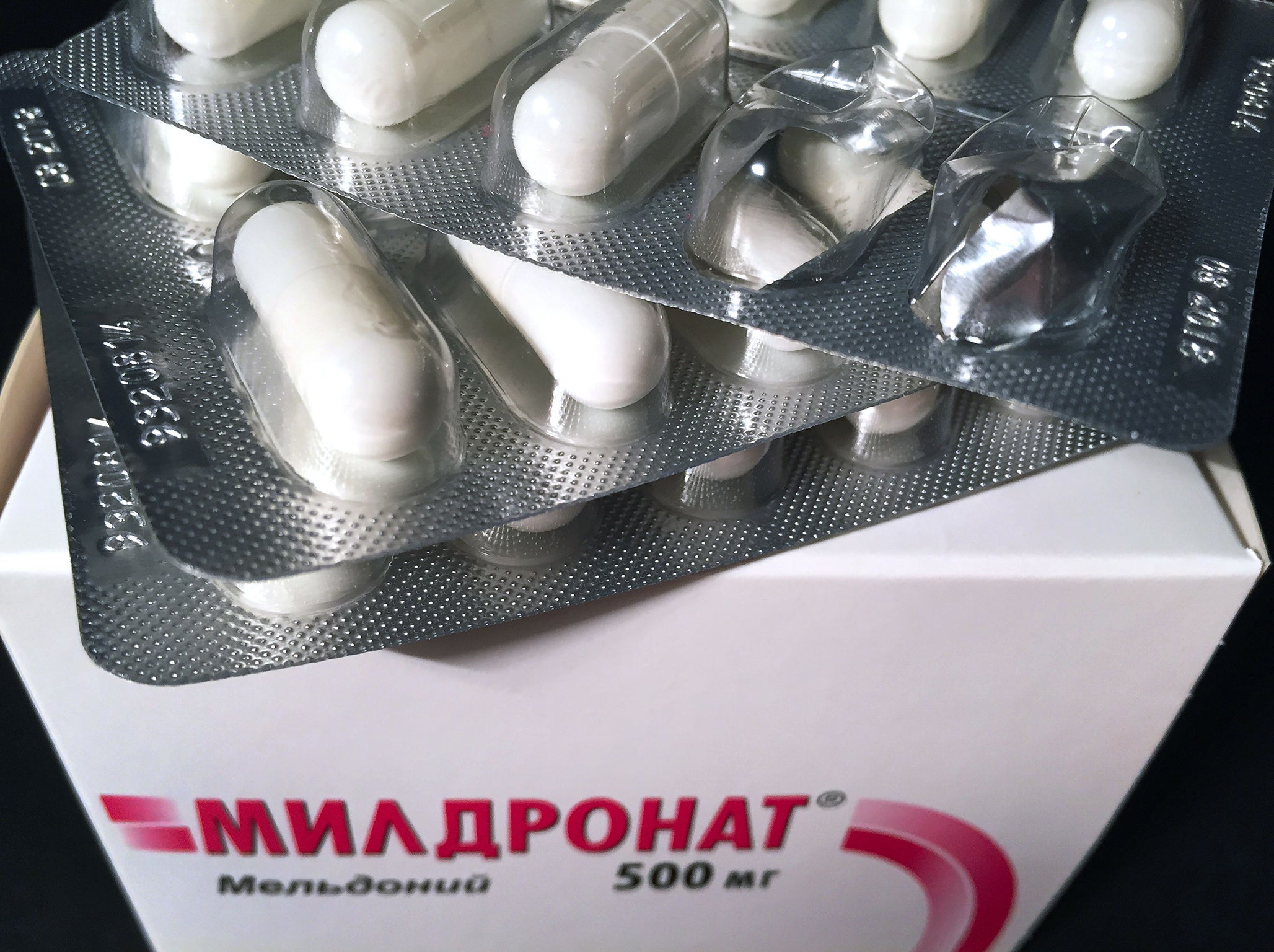Russian state medical agency boasts of better replacements for banned substance meldonium
Federal Medical-Biological Agency head Vladimir Uiba has crowed that Russia has found 'several drugs which are not banned and work significantly better than meldonium'
Your support helps us to tell the story
From reproductive rights to climate change to Big Tech, The Independent is on the ground when the story is developing. Whether it's investigating the financials of Elon Musk's pro-Trump PAC or producing our latest documentary, 'The A Word', which shines a light on the American women fighting for reproductive rights, we know how important it is to parse out the facts from the messaging.
At such a critical moment in US history, we need reporters on the ground. Your donation allows us to keep sending journalists to speak to both sides of the story.
The Independent is trusted by Americans across the entire political spectrum. And unlike many other quality news outlets, we choose not to lock Americans out of our reporting and analysis with paywalls. We believe quality journalism should be available to everyone, paid for by those who can afford it.
Your support makes all the difference.A Russian state medical agency says it has found new and improved alternatives to meldonium, the banned substance for which tennis star Maria Sharapova tested positive.
Federal Medical-Biological Agency head Vladimir Uiba says Russia has found "several drugs which are not banned and work significantly better than meldonium," in comments carried by Russian news agencies.
Uiba didn't name the new drugs and it wasn't immediately clear whether they are already being used by top Russian athletes. Uiba's agency is tasked with providing medical support to Russian national teams in many sports.

Sharapova was among over 100 athletes who tested positive after the heart drug meldonium was banned in sport last year.
Most of those were cleared because of evidence they had stopped taking meldonium before it was banned, though Sharapova was suspended because she had taken it after the cutoff date.
Numerous claims have been made over recent decades about meldonium, which is marketed for sufferers from heart and circulatory conditions, including that it can increase physical and mental endurance.

However, Russian officials have said it is not performance-enhancing in a sports context, and argued it prevents heart attacks under extreme stress.
Sharapova said last year she used meldonium for 10 years for reasons including a magnesium deficiency, irregular heart test results and a family history of diabetes.
Sharapova will return to the WTA Tour at a competition in Stuttgart on Apr. 26, the day her 15-month ban ends.
Join our commenting forum
Join thought-provoking conversations, follow other Independent readers and see their replies
Comments